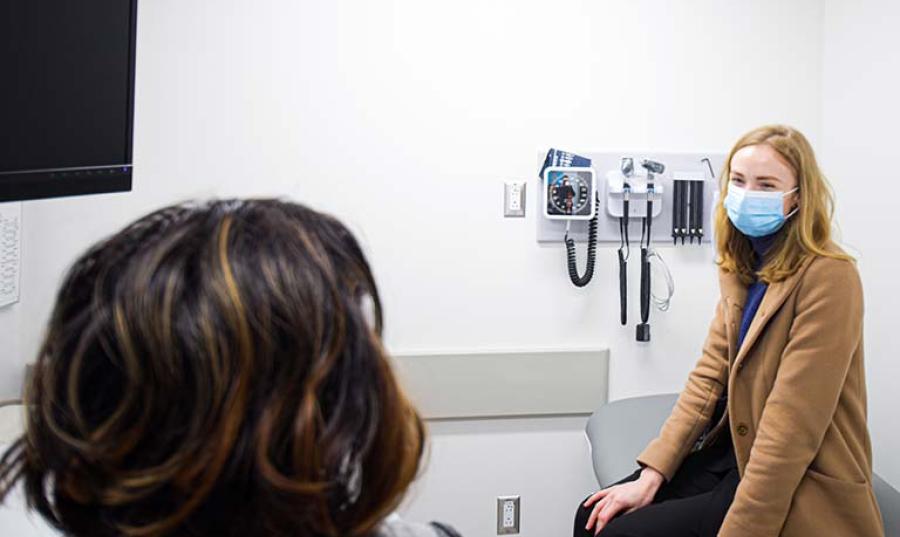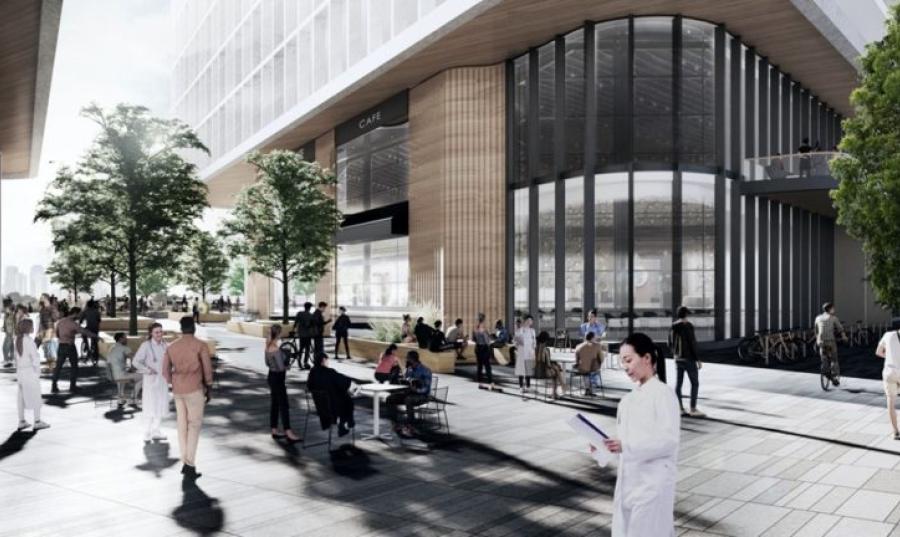
A new payment model for family doctors in British Columbia is a great opportunity to build a rewarding career in Surrey – and maybe even teach the trade with the proposed new medical school at Simon Fraser University’s Surrey campus.
The provincial government announced a new payment model for family doctors to help protect, support and strengthen B.C.’s health-care system and patient care.
This comes on the heels of the latest census data showing Surrey is growing fast with a record 1,500 new residents calling the City home each month.
With this growth comes great opportunities for aspiring doctors and health professionals looking for a new challenge while being rewarded for it.
The new payment model provides another option for family doctors that marks a departure from the fee-for-service model under which doctors are paid based primarily on the number of patients they see in a day.
The new model considers factors including: the time a doctor spends with a patient; the number of patients a doctor sees in a day; the number of patients a doctor supports through their office; the complexity of the issues a patient is facing; and administrative costs currently paid directly by family doctors.
The new payment model, which was co-developed by Doctors of BC, BC Family Doctors and the province, will be available to family doctors beginning in February of 2023.
Under a new three-year Physician Master Agreement, a full-time family doctor would be paid about $385,000 a year, up from the current $250,000.
With the new payment model, the province will be better able to attract new family doctors to family practice and retain existing doctors. This bodes well for Surrey, a young, vibrant, and growing city.

Here are the top reasons why Surrey is a good move for family doctors:
- A vibrant health region: Surrey is part of the Fraser Health Authority, the largest health authority in BC and serves more than 1.9 million people in a region stretching from Burnaby to the Fraser Canyon. Surrey is also one of the fastest-growing large cities in B.C. and Canada, with a sizeable young population, boasting the province’s largest school district with more than 74,000 students.
- A more affordable place to live: Compared to the much of the Lower Mainland, Surrey is still a relatively affordable place to live. In Surrey, 26% of people are spending more than 30% of their household income on housing/shelter costs, compared to 30% in Metro Vancouver and 33.5% in the City of Vancouver and that’s with an average total income of $116,600 for private households. Housing prices also aren’t that far off from major cities such as Calgary.
- Access to hospitals: Surrey is home to Surrey Memorial Hospital and the Jim Pattison Outpatient Care and Surgery Centre, and will be home to the new Surrey hospital and BC Cancer Centre that’s set to open in the fall of 2027. Doctors can be assured they will be well supported with access to specialists and specialized care. Surrey Memorial Hospital is the largest of Fraser Health’s three regional hospitals, as well as the second-largest hospital in the province, boasting a dedicated pediatrics emergency area, cardiac and critical care, surgical sub-specialties and obstetrics. The Jim Pattison outpatient centre, meanwhile, provides a full range of outpatient services including day surgery, diagnostics and specialized health clinics. The new hospital and cancer centre, announced in December of 2019, will be a fully digitally equipped, fully electric facility that will be at the forefront of health-care innovation, technology and sustainability.
- A rewarding opportunity to hone skills in specialized care: There’s a huge opportunity for doctors to keep up with a quickly growing population. And in Surrey, a profile from the Provincial Health Services Authority notes there is a higher prevalence rate of some chronic diseases, such as asthma, diabetes, heart failure and high blood pressure compared to the rest of the province.
- A growing network of health clinics: Surrey has dozens of health clinics scattered throughout the City’s six town centres from independent clinics to nationally recognized ones such as the Denning Health Group, Viva Care, WELL Health, which acquired MyHealth in 2021 to become Canada’s largest outpatient medical clinic owner-operator, with nine clinics in the City. Surrey is also home to two urgent and primary care centres, which provide access to same-day, urgent, non-emergency healthcare.
- A hub for burgeoning health-care professionals: Surrey is home to campuses for Simon Fraser University and the University of British Columbia, which both have booming health-care related programs. SFU has had a 20-year presence, and the province said in 2020 that SFU Surrey would be home to the province’s second medical school. Meantime, the University of British Columbia announced in November 2021 that its properties trust had purchased a 135,000-sq.-ft. property in City Centre for $70 million, but UBC’s presence in Surrey isn’t new. With thousands of students, faculty, staff and alumni who call the City home, Surrey Memorial Hospital is also one of the university’s 11 clinical academic campuses for the faculty of medicine. If you’re a doctor thinking of a change in environment and seeking a new challenge, connect with us at investsurrey.ca and we can help connect you to opportunities across the city, and subscribe to our newsletter here to get the latest on insights, in-depth reports and news.



